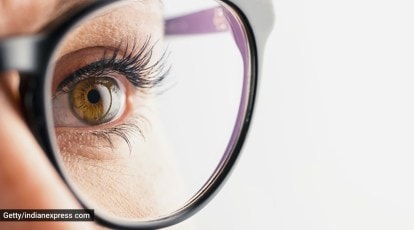Leading Cardiologist Andalusia: Your Partner in Heart Health
Leading Cardiologist Andalusia: Your Partner in Heart Health
Blog Article
Is Refractive Surgery Right for You? Elements to Take Into Consideration for Better Eyecare
In the realm of eye treatment, the choice to undertake refractive surgical procedure is a weighty one that demands thoughtful factor to consider. From the details of one's eye wellness to the details of personal assumptions and daily routines, each element holds value in the more comprehensive landscape of refractive surgery candidacy.
Eye Health Examination
When taking into consideration refractive surgical treatment, an extensive eye wellness assessment is crucial to assess the viability of the treatment for every individual. cardiologist andalusia. This analysis entails a series of tests and exams performed by an eye care professional to establish the general health and wellness of the eyes, the presence of any type of hidden problems, and the security of the refractive error
Throughout the analysis, different factors are considered, such as the client's medical history, existing eye prescription, corneal thickness, student size, and tear movie quality. These analyses help to recognize any contraindications to refractive surgical procedure, such as corneal abnormalities, cataracts, or unattended eye infections. Furthermore, the analysis assists to take care of patient assumptions regarding the prospective end results of the surgery based upon their one-of-a-kind eye qualities.
Ultimately, the eye health and wellness analysis is essential in making sure the safety and security and effectiveness of refractive surgical treatment, as it supplies beneficial insights into the individual's eye health standing and helps identify the most appropriate therapy alternatives for attaining optimum aesthetic end results. (eye doctors in andalusia)
Way Of Life Evaluation
An extensive lifestyle analysis is essential in determining the viability of refractive surgery for a person's aesthetic modification needs. Way of life factors such as profession, hobbies, and everyday tasks play a vital role in the decision-making process pertaining to refractive surgical treatment.
Furthermore, way of life behaviors such as sports involvement, exterior activities, and even skin care routines can influence the recovery procedure and overall success of refractive surgical procedure. People that involve in contact sports might require to take additional preventative measures to protect their eyes during the recuperation duration. Additionally, people with extensive sun direct exposure might need additional post-operative treatment to avoid issues. By conducting a detailed lifestyle analysis, eye care professionals can customize their referrals and therapy plans to meet the unique needs of each client, inevitably leading to boosted aesthetic results and contentment.
Expectation Alignment

Patients require to comprehend that while several people achieve 20/20 vision or far better complying with refractive surgical procedure, some may still require glasses for specific tasks like analysis or driving at night. Managing these expectations aids stop disappointment and discontentment post-surgery, leading to an extra positive general experience for the person.
Risk Analysis

Elements that might increase the danger of difficulties This Site include age, specific clinical conditions like autoimmune illness, unpredictable vision prescription, slim corneas, and unrealistic person expectations. Additionally, selecting a skilled and skilled specialist, adhering to pre and post-operative care guidelines faithfully, and disclosing any type of pertinent clinical history can assist mitigate dangers.
To decrease the probability of difficulties, eye doctors conduct extensive pre-operative examinations to recognize any contraindications to surgical treatment. They additionally talk about the possible threats and benefits with clients throughout the consultation process. By participating in open interaction and shared decision-making, both the ophthalmologist and the client can work with each other to identify if refractive surgical treatment is the right option based upon private danger profiles and desired end results.
Assessment Relevance
Considering the essential function of informed decision-making in evaluating threats and potential complications in refractive surgical treatment, the consultation procedure holds significant significance in leading people in the direction of ideal outcomes. During the appointment, the eye doctor assesses the patient's eye wellness, refractive mistakes, and general suitability for surgical procedure. This preliminary assessment is essential in determining one of the most appropriate treatment for each and every Read More Here individual, thinking about variables such as corneal thickness, student dimension, and existing eye conditions.
In addition, the assessment acts as a chance for clients to review their expectations, problems, and any type of inquiries they might have concerning the surgery. Clear interaction between the patient and the doctor is necessary to make sure realistic assumptions and an extensive understanding of the possible dangers and advantages involved.
In addition, the consultation enables the surgeon to discuss the various surgical alternatives available, their particular end results, and the post-operative care needed. This thorough discussion equips people to make well-informed choices concerning their eye care, bring about better contentment and outcomes post-surgery.
Final Thought
In verdict, people considering refractive surgical treatment needs to undertake a comprehensive eye health examination, examine their way of living practices, straighten their assumptions with possible end results, analyze the involved dangers, and focus on examinations with eye treatment specialists. These variables play an important function in figuring out the viability of top article refractive surgical treatment for every person, making sure ideal results and fulfillment with the treatment.
Individuals thinking about refractive surgical procedure often have high expectations regarding the outcomes, expecting perfect vision without the demand for glasses or call lenses. While refractive surgical treatment can considerably enhance vision and decrease reliance on visual aids, it is crucial for patients to recognize that outcomes might vary based on individual aspects such as the degree of refractive error, corneal density, and overall eye health.
By engaging in open communication and shared decision-making, both the individual and the eye doctor can function with each other to identify if refractive surgical treatment is the appropriate selection based on specific risk profiles and preferred results.
Considering the vital duty of informed decision-making in evaluating threats and possible issues in refractive surgical treatment, the assessment procedure holds significant relevance in leading clients in the direction of optimal end results. During the examination, the ophthalmologist examines the patient's eye health and wellness, refractive mistakes, and general viability for surgery.
Report this page